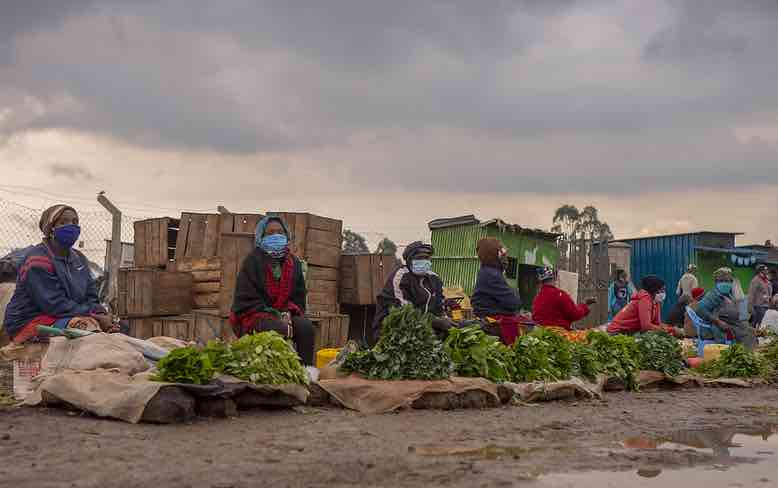Important: This website search is limited to displaying the 100 most recent results to ensure optimal performance. For access to the complete archive of IFPRI publications and resources, please visit the IFPRI Institutional Repository at https://cgspace.cgiar.org/.
Dataset
Ultra-poor Graduation Midline Survey in Somalia, 2023
2025International Food Policy Research Institute
Dataset
Ultra-poor Graduation Endline Survey in Somalia, 2024
2025International Food Policy Research Institute
Dataset
Food Security Simulator – Malawi
2025International Food Policy Research Institute
Dataset
2024 Social Accounting Matrix for Egypt
2025International Food Policy Research Institute
Dataset
2023 Social Accounting Matrix for Sierra Leone
2025International Food Policy Research Institute
Dataset
Aflatoxin surveillance in Kenya
2025International Food Policy Research Institute
Dataset
2018 Social Accounting Matrix for Rwanda
2025International Food Policy Research Institute
Dataset
Global Gridded Data on Climate Impact on Yields From DSSAT Crop Model, 2005–2050
2025International Food Policy Research Institute
Dataset
HER+ Sustainable Land Management Trial in Ethiopia: Endline Survey
2025International Food Policy Research Institute
Dataset
HER+ Sustainable Land Management Trial in Ethiopia: Baseline Survey
2025International Food Policy Research Institute
Dataset
SELEVER study: Endline survey
2025International Food Policy Research Institute
Dataset
SELEVER study: Baseline survey
2025International Food Policy Research Institute
Dataset
SELEVER study: Second follow-up survey
2025International Food Policy Research Institute
Dataset
SELEVER study: First follow-up survey
2025International Food Policy Research Institute
Dataset
Replication data for “Estimating the direct and indirect effects of improved seed adoption on yields: Evidence from DNA-fingerprinting, crop cuts, and self-reporting in Ethiopia”
2025International Food Policy Research Institute
Dataset
Strengthen PSNP Institutions and Resilience Phase II (SPIR II), Ethiopia: Baseline Survey
2025International Food Policy Research Institute
Dataset
Integrated and enhanced dataset on food security and household coping strategies of Burkina Faso (2018-2023)
2025International Food Policy Research Institute
Dataset
Integrated and enhanced dataset on food security and household coping strategies of Chad (2018-2023)
2025International Food Policy Research Institute
Dataset
Integrated and enhanced dataset on food security and household coping strategies of Mali (2018-2023)
2025International Food Policy Research Institute
Dataset
Integrated and enhanced dataset on food security and household coping strategies of Niger (2018-2023)
2025International Food Policy Research Institute
Dataset
Replication Data for “Fertilizer Policy Reforms in the Midst of Crisis: Evidence from Rwanda”
2025International Food Policy Research Institute
Dataset
Simulated Future Climates for Ethiopia Using MIT-IGSM HFDs Based on CMIP5
2024International Food Policy Research Institute; Massachusetts Institute of Technology
Dataset
SPIR II Group Problem Management Plus (gPM+) Baseline Survey in Tigray, Ethiopia
2024International Food Policy Research Institute
Dataset
Strengthen PSNP Institutions and Resilience Phase II (SPIR II), Ethiopia: Group Problem Management Plus (g-PM+) Pilot, Follow-up 2
2024International Food Policy Research Institute
Dataset
Strengthen PSNP Institutions and Resilience Phase II (SPIR II), Ethiopia: Group Problem Management Plus (g-PM+) Pilot, Follow-up 1
2024International Food Policy Research Institute
Dataset
Irrigation technologies, Use of Solar Pumps and Gendered Impacts
2024International Food Policy Research Institute
Dataset
Food Security Simulator – Ethiopia
2024International Food Policy Research Institute
Dataset
2022 Social Accounting Matrix for Ethiopia
2024International Food Policy Research Institute
Dataset
2022 Social Accounting Matrix for Malawi
2024International Food Policy Research Institute
Dataset
2022 Social Accounting Matrix for Ghana
2024International Food Policy Research Institute
Dataset
Nature+ Quantitative Baseline Household & Worker Survey, Kenya
2024International Food Policy Research Institute; Kula Vyema Centre
Dataset
2022 Social Accounting Matrix for Uganda
2024International Food Policy Research Institute
Dataset
2021 Social Accounting Matrix for Sudan
2024International Food Policy Research Institute
Dataset
2022 Social Accounting Matrix for Rwanda
2024International Food Policy Research Institute
Dataset
2022 Social Accounting Matrix for Tanzania
2024International Food Policy Research Institute
Dataset
Survey of Micro, Small, and Medium Enterprises in Agri-Food Value Chains: Network-Based Recruitment Approach in Uganda
2024International Food Policy Research Institute
Dataset
Drivers of Pigeon Peas Consumption Among School Aged Children in Central Tanzania
2024International Crops Research Institute for the Semi-Arid Tropics
Dataset
Generalized Livelihoods Self-efficacy Scale
2024Measures for Advancing Gender Equality (MAGNET) Initiative
Dataset
Project-level Women’s Empowerment in Agriculture Index for Market Inclusion (Pro-WEAI+MI): Malawi Case Study
2024International Food Policy Research Institute
Dataset
Cognitive Labor
2024Measures for Advancing Gender Equality (MAGNET) Initiative
Dataset
Motivational Autonomy and Internalized Norms
2024Measures for Advancing Gender Equality (MAGNET) Initiative
Dataset
Time-use Agency
2024Measures for Advancing Gender Equality (MAGNET) Initiative
Dataset
Collective Agency
2024Measures for Advancing Gender Equality (MAGNET) Initiative
Dataset
Algorithmic Assessment of Agency
2024Measures for Advancing Gender Equality (MAGNET) Initiative
Dataset
Short-form Locus of Control Scale
2024Measures for Advancing Gender Equality (MAGNET) Initiative
Dataset
Gender Inequality: Critical Consciousness Scale
2024Measures for Advancing Gender Equality (MAGNET) Initiative
Dataset
Gender and Occupation: Automatic Cognition Test
2024Measures for Advancing Gender Equality (MAGNET) Initiative
Dataset
Agricultural Self-efficacy Scale
2024Measures for Advancing Gender Equality (MAGNET) Initiative
Dataset
Valuation of Time and Money
2024Measures for Advancing Gender Equality (MAGNET) Initiative
Dataset
Goal-setting Capacity Scale
2024Measures for Advancing Gender Equality (MAGNET) Initiative
Dataset
Preferences Over Decision-Making
2024Measures for Advancing Gender Equality (MAGNET) Initiative
Dataset
Enumerator Characteristics and Reporting Bias
2024Measures for Advancing Gender Equality (MAGNET) Initiative
Dataset
Resistance and Backlash
2024Measures for Advancing Gender Equality (MAGNET) Initiative
Dataset
Bandwidth Depletion
2024Measures for Advancing Gender Equality (MAGNET) Initiative
Dataset
Asset Control and Benefits Scale
2024Measures for Advancing Gender Equality (MAGNET) Initiative
Dataset
Understanding the Meanings of Ownership
2024Measures for Advancing Gender Equality (MAGNET) Initiative
Dataset
Rights when Land is Owned Jointly
2024Measures for Advancing Gender Equality (MAGNET) Initiative
Dataset
Asset Rights Upon Marriage Dissolution
2024Measures for Advancing Gender Equality (MAGNET) Initiative
Dataset
Intra-personal Conflict Strategies
2024Measures for Advancing Gender Equality (MAGNET) Initiative
Dataset
Unpacking Joint Decision-making
2024Measures for Advancing Gender Equality (MAGNET) Initiative
Dataset
Preferences Over Joint vs. Individual Asset Rights
2024Measures for Advancing Gender Equality (MAGNET) Initiative
Dataset
ACLED Conflict Index G5 Sahel (2018-2023)
2024International Food Policy Research Institute
Dataset
Smallholder Agriculture Commercialization in Rwanda, 2022
2024International Food Policy Research Institute
Dataset
Tanzania Feed the Future Innovation Lab for Small-Scale Irrigation (ILSSI) Endline Survey, 2017
2024International Food Policy Research Institute
Dataset
Ethiopia Feed the Future Innovation Lab for Small-Scale Irrigation (ILSSI) Endline Survey, 2017
2024International Food Policy Research Institute
Dataset
2021 Social Accounting Matrix for Nigeria
2024International Food Policy Research Institute
Dataset
Ghana Feed the Future Innovation Lab for Small-Scale Irrigation (ILSSI) Endline Survey, 2017
2024International Food Policy Research Institute
Dataset
Ghana Feed the Future Innovation Lab for Small-Scale Irrigation (ILSSI) Baseline Survey, 2015
2024International Food Policy Research Institute
Dataset
Dataset on the impact of biofortified cassava in Nigeria: assessment of livelihood outcomes in Nigeria
2024Gurmu, M.; Feleke, S.; Abdoulaye, T.; Andam, Kwaw S.; Adeyemo, T.
Dataset
Strengthen PSNP Institutions and Resilience Phase II (SPIR II), Ethiopia: Group Problem Management Plus (g-PM+) Pilot Screening Survey
2023International Food Policy Research Institute
Dataset
Strengthen PSNP Institutions and Resilience Phase II (SPIR II), Ethiopia: Group Problem Management Plus (g-PM+) Pilot Baseline Survey
2023International Food Policy Research Institute
Dataset
COVID-19 Impact on Rural Men and Women in Rwanda, Round 1
2023International Food Policy Research Institute
Dataset
COVID-19 Impact on Rural Men and Women in Rwanda, Round 2
2023International Food Policy Research Institute
Dataset
A&T Burkina Faso Maternal Nutrition Endline Survey 2021: Agent de santé Communautaire (ASBC)
2023International Food Policy Research Institute
Dataset
Strengthen PSNP4 Institutions and Resilience (SPIR), Ethiopia: Baseline Survey
2023International Food Policy Research Institute
Dataset
Replication Data for “Estimating the Intrahousehold Costs and Benefits of Innovations to Enhance Smallholder Farmers’ Resilience”
2023International Food Policy Research Institute; University for Development Studies
Dataset
Strengthen PSNP Institutions and Resilience Phase II (SPIR II), Ethiopia: Group Problem Management Plus (g-PM+) Pilot Screening Survey
2023International Food Policy Research Institute
Dataset
Replication Data for “Measuring Consumption Over the Phone: Evidence From a Survey Experiment in Urban Ethiopia”
2023International Food Policy Research Institute
Dataset
Survey on Gendered Constraints to Employment and Entrepreneurship, Lesotho
2023International Food Policy Research Institute
Dataset
Perceived Effect of Feed-Health Intervention for Improved Small Ruminant Production on Gender and Household Nutrition in Koutiala District
2023International Livestock Research Institute
Dataset
Assessing the Effect of Residue Quantity and Quality, and Water Conservation on Maize Productivity and Nitrogen Dynamics on Smallholder Farms in Malawi
2023International Institute of Tropical Agriculture
Dataset
Survey of Land and Water Management Practices Over Time on the Productivity and Economic Benefits of Cereal Crops
2023International Crops Research Institute for the Semi-Arid Tropics
Dataset
GIS Mapping of Implemented Technologies across Different Agro-Ecologies and Demographic Settings to Help Evaluation of Adoption Practices
2023Association Malienne d’éveil au Développement Durable
Dataset
Implications of Residue Quantity and Quality on Rotational Maize Productivity
2023International Institute of Tropical Agriculture
Dataset
Intensification of Maize-Legume Based Systems in the Semi-Arid Areas of Tanzania
2023International Crops Research Institute for the Semi-Arid Tropics
Dataset
Use of Tractor Mounted Ripper Tillage for Enhancing Soil Water Infiltration and Moisture Conservation in Semi-Arid Areas of Central Tanzania
2023Tanzania Agricultural Research Institute
Dataset
Validation of Residual Tied Ridging Insitu Rainwater Harvesting Labor Saving Technology in Semi-Arid Areas of Central Tanzania
2023Tanzania Agricultural Research Institute; International Institute of Tropical Agriculture; University of Dodoma
Dataset
Validation of Residual Tied Ridging Insitu Rainwater Harvesting Labor Saving Technology in Semi-Arid Areas of Central Tanzania
2023Tanzania Agricultural Research Institute; International Institute of Tropical Agriculture; University of Dodoma
Dataset
A&T Ethiopia Maternal Nutrition Endline Survey 2021: Nurse-Midwife
2023International Food Policy Research Institute
Dataset
A&T Burkina Faso Maternal Nutrition Endline Survey 2021: Antenatal Care (ANC) Observation
2023International Food Policy Research Institute
Dataset
2019 Social Accounting Matrix for Ghana
2023Ghana Statistical Services; Institute for Statistical, Social, and Economic Research; International Food Policy Research Institute
Dataset
A&T Burkina Faso Maternal Nutrition Endline Survey 2021: Husband
2023International Food Policy Research Institute
Dataset
A&T Burkina Faso Maternal Nutrition Endline Survey 2021: Health Facility
2023International Food Policy Research Institute
Dataset
A&T Ethiopia Adolescent Nutrition Endline Survey 2021: Health Extension Worker
2023International Food Policy Research Institute
Dataset
A&T Burkina Faso Maternal Nutrition Endline Survey 2021: Recently Delivered Women
2023International Food Policy Research Institute
Dataset
A&T Ethiopia Maternal Nutrition Endline Survey 2021: Pregnant Women
2023International Food Policy Research Institute
Dataset
A&T Ethiopia Adolescent Nutrition Endline Survey 2021: Primary School
2023International Food Policy Research Institute
Dataset
2019 Social Accounting Matrix for Ghana
2023Ghana Statistical Services; International Food Policy Research Institute; Institute for Statistical, Social, and Economic Research
Dataset
2019 Social Accounting Matrix for Malawi
2023International Food Policy Research Institute
Dataset
A&T Ethiopia Adolescent Nutrition Endline Survey 2021: Parent
2023International Food Policy Research Institute



